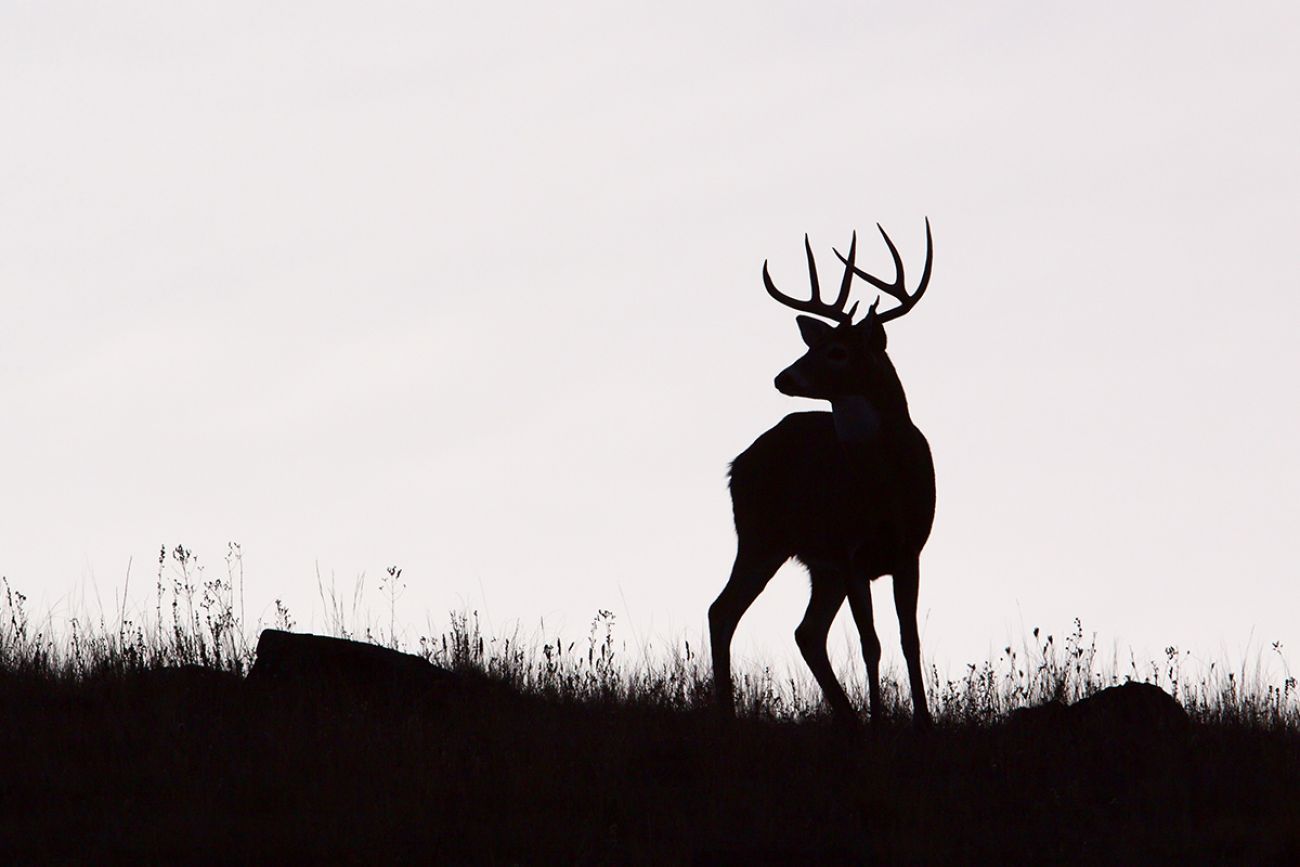Change Michigan’s Nov. 15 deer season opener? No way, DNR says

- Hunting is waning, leading to too many deer and budgetary issues for the state
- Officials considered moving the deer hunting opening from Nov. 15 to the weekend to allow more people to hunt
- But hunters love the tradition of the Nov. 15 date and there was no clear evidence that moving it would help
The Nov. 15 firearm opener is a tradition so deeply-entrenched in Michigan deer hunting culture, some communities treat it as a de-facto public holiday.
And after studying the issue, Michigan hunting regulators say they see no reason to change that.
Acting on a request from former DNR Director Dan Eichinger, staff in the Michigan Department of Natural Resources considered the possibility of moving Michigan’s deer season opener. Among other things, they wanted to know whether declining hunting participation might rebound if opening day was scheduled to fall on the weekend.
Related:
- As hunting wanes, fear of a southern Michigan deer invasion grows
- Few good options for shrinking Michigan’s problem deer herds
- Michigan deer hunters decline as pandemic boost in hunting wanes
“The question that has been asked was, would Michigan be better served by moving away from that Nov. 15 opener?” said Chad Stewart, deer, elk and moose management specialist for the DNR, during a presentation Thursday before the Michigan Natural Resources Commission.
The state’s research revealed that die-hard Michigan hunters are more than willing to skip work or school for opening day if it falls on a weekday, and those abandoning the sport are motivated by other factors.
Michigan has lost hundreds of thousands hunters since the mid-1990s. Last year, 586,323 people purchased a state hunting license, a 1 percent decline from 2021 but more than 270,000 fewer hunters than in 1996.
That poses a problem for the DNR, which gets about 20 percent of its funding from hunting and fishing licenses. It has also allowed deer herds to skyrocket in Michigan, causing problems for humans.
Historical statistics Stewart presented at Thursday’s meeting show hunter enthusiasm doesn’t depend on when deer season starts. The number of total deer killed in a given season doesn’t change much, either. Nor does hunters’ success in the woods.
“We see, really, no discernible trends,” Stewart said.
Experts have attributed the decline in hunting interest to a variety of factors, from urbanization that has more Americans living far away from hunting lands, to growing competition from other pastimes.
Though hunting participation continues to wane, opening day remains so popular that the Legislature takes a break and many rural school districts cancel school in observance. That may help explain why hunters killed more deer on opening day last year (a Tuesday) than on the final nine days of the season combined.
Hunters themselves have repeatedly rejected the concept of changing the season opener to the weekend. During separate polls of Michigan hunters in 2009 and 2016, more than 80 percent favored keeping the Nov. 15 tradition alive.
“I think the main draw is that it’s just a tradition,” said Erik Schnelle, who leads the Michigan chapter of the National Deer Association. But on a personal note, Schnelle said, “I would love to see a Saturday start.”
He posited that a weekend opener would allow more young hunters to get into the woods without having to use precious vacation days.
Evidence from Pennsylvania, a state that shifted opening day to the weekend in 2019, indicates that the change made little difference, however. The number of hunters continued to decline, and active hunters didn’t spend any more time in the woods.
The upshot for Michigan: “The recommendation is basically that there is no recommendation,” Stewart said.
If state officials were to recommend a change, he said, they would keep the Nov. 15 opening date but extend the current 16-day firearms season to three full weekends.
But Schnelle said he doubts any hunting policy change could get more hunters into the woods. Instead, he believes mentorship by existing hunters is key to recruiting newcomers.
Until then, he said, Michigan wildlife officials must figure out how to manage skyrocketing deer populations with fewer hunters in the woods. Unchecked population growth is leading to more car crashes, nuisance complaints and habitat destruction across the state.
“If you have too many deer,” he said, “They will eat themselves out of house and home.”
Michigan Environment Watch
Michigan Environment Watch examines how public policy, industry, and other factors interact with the state’s trove of natural resources.
- See full coverage
- Subscribe
- Share tips and questions with Bridge environment reporter Kelly House
Michigan Environment Watch is made possible by generous financial support from:
Our generous Environment Watch underwriters encourage Bridge Michigan readers to also support civic journalism by becoming Bridge members. Please consider joining today.
See what new members are saying about why they donated to Bridge Michigan:
- “In order for this information to be accurate and unbiased it must be underwritten by its readers, not by special interests.” - Larry S.
- “Not many other media sources report on the topics Bridge does.” - Susan B.
- “Your journalism is outstanding and rare these days.” - Mark S.
If you want to ensure the future of nonpartisan, nonprofit Michigan journalism, please become a member today. You, too, will be asked why you donated and maybe we'll feature your quote next time!






